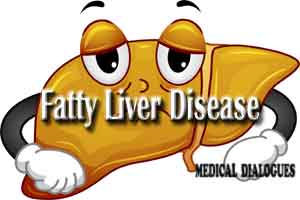- Home
- Editorial
- News
- Practice Guidelines
- Anesthesiology Guidelines
- Cancer Guidelines
- Cardiac Sciences Guidelines
- Critical Care Guidelines
- Dentistry Guidelines
- Dermatology Guidelines
- Diabetes and Endo Guidelines
- Diagnostics Guidelines
- ENT Guidelines
- Featured Practice Guidelines
- Gastroenterology Guidelines
- Geriatrics Guidelines
- Medicine Guidelines
- Nephrology Guidelines
- Neurosciences Guidelines
- Obs and Gynae Guidelines
- Ophthalmology Guidelines
- Orthopaedics Guidelines
- Paediatrics Guidelines
- Psychiatry Guidelines
- Pulmonology Guidelines
- Radiology Guidelines
- Surgery Guidelines
- Urology Guidelines
Fatty liver disease undetected in post-menopausal women: study

Ohio : Non-alcoholic fatty liver disease (NAFLD) considered a cardiovascular disease risk factor, is often not detected in post-menopausal women, a recent study has revealed.
The study was released by the North American Menopause Society (NAMS) over a test conducted on the efficacy of aerobic exercise in post-menopausal women.
NAFLD can also lead to insulin resistance, abdominal obesity, hypertension, dyslipidemia and Type 2 diabetes mellitus.
"NAFLD is associated with obesity, insulin resistance, and adult-onset diabetes and is characterised by fat in the liver seen on ultrasound or other testing and elevated liver enzymes," said NAMS Executive Director Jo Ann V. Pinkerton in a release.
Decreased estrogen production during menopause of women is associated with changes in body composition, exposing women to the risk of increased body weight and abdominal obesity, which contributes to the development of NAFLD.
"This study shows the benefit of counselling women at risk of diagnosis with fatty liver disease about the benefits of increased physical activity, including less fat around the middle, improvement in good cholesterol, and improved ability to exercise (cardiopulmonary functional capacity)," added Pinkerton.
People with NAFLD have lower cardiopulmonary functional capacity, which independently increases cardiovascular risk.
Improved cardio-respiratory fitness has been associated with lower all-cause mortality risk in women with elevated glucose levels or with diabetes.

Disclaimer: This site is primarily intended for healthcare professionals. Any content/information on this website does not replace the advice of medical and/or health professionals and should not be construed as medical/diagnostic advice/endorsement or prescription. Use of this site is subject to our terms of use, privacy policy, advertisement policy. © 2020 Minerva Medical Treatment Pvt Ltd